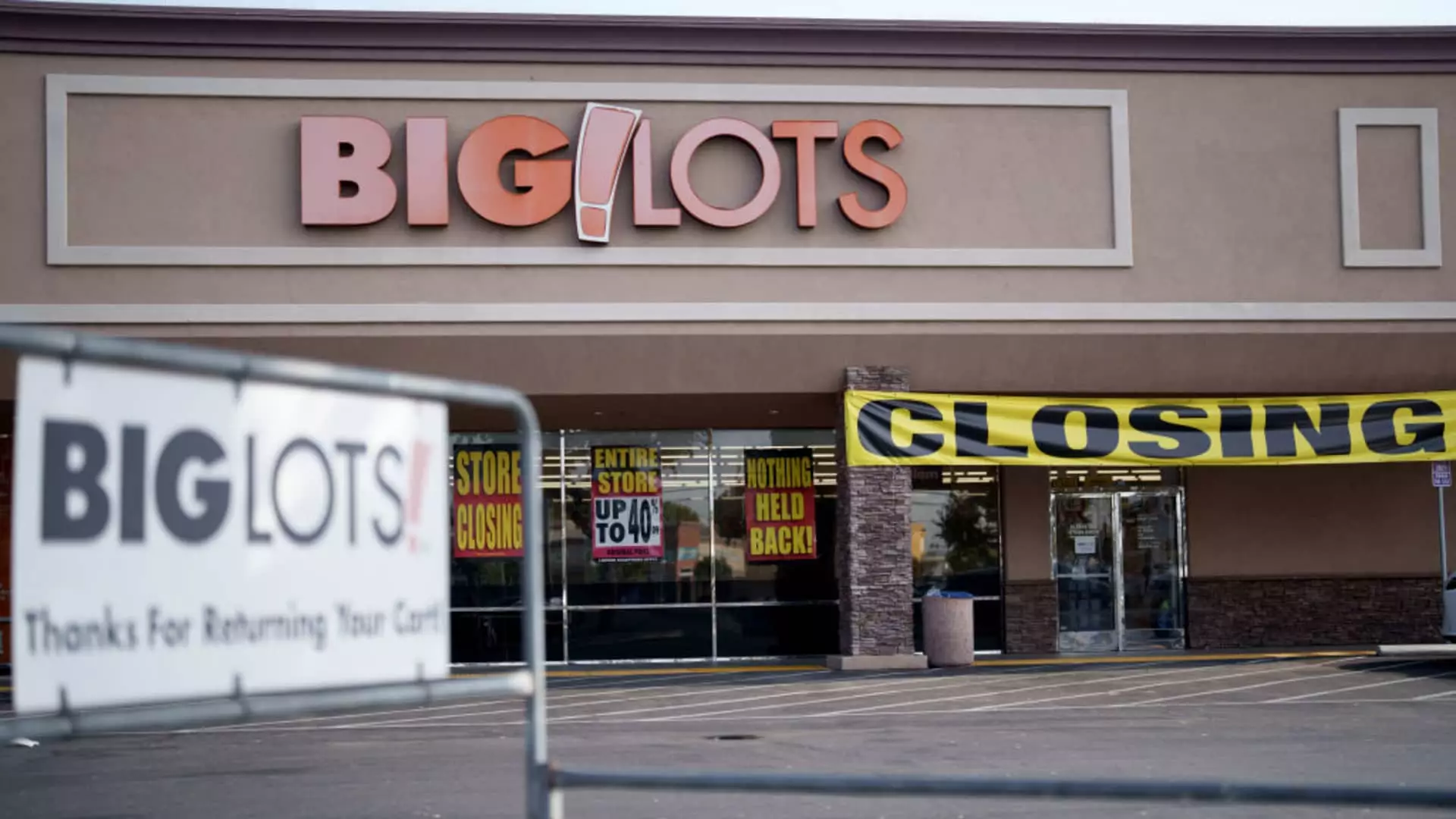Discount home goods giant Big Lots recently filed for bankruptcy, citing high interest rates and a sluggish housing market as primary factors contributing to its decline. With revenue of $4.7 billion in fiscal 2023, Big Lots has been a key player in the closeout retail space, offering bargain-basement prices on a variety of home goods. However, after the pandemic-induced surge in demand for home furnishings waned, the company began to experience a steady decline in sales.
In an effort to address its financial woes, Big Lots has agreed to sell its business to private equity firm Nexus Capital Management for $760 million. This deal includes $2.5 million in cash along with the company’s remaining debt and liabilities. Moreover, Big Lots has announced plans to close nearly 300 stores in order to streamline operations and reduce costs. CEO Bruce Thorn expressed optimism about the company’s future under new ownership, highlighting a commitment to offering extreme bargains and enhancing customer experience.
Big Lots’ struggles can be attributed to a combination of macroeconomic factors, changing consumer behavior, and intense competition in the retail sector. The company primarily caters to lower and middle-income consumers, who have scaled back on discretionary spending in light of economic uncertainties. Moreover, Big Lots faces stiff competition from other discount retailers like Wayfair, Walmart, and TJX Cos.’ Home Goods, which offer similar products at competitive prices. Neil Saunders, managing director of GlobalData, noted that Big Lots’ product assortment is lacking in quality and value, leading consumers to seek better options elsewhere.
Despite its current challenges, there is hope for Big Lots as it navigates through the bankruptcy process. The company will hold a court-supervised auction for its business, potentially opening the door for a new buyer to step in with a higher bid. Collaborating with legal and financial advisors, Big Lots is working diligently to restructure its operations and emerge stronger from this period of financial adversity. Ultimately, the retail landscape is constantly evolving, and companies like Big Lots must adapt to survive in an increasingly competitive market.
The story of Big Lots serves as a cautionary tale for retailers seeking sustainable growth in a rapidly changing industry. By addressing financial vulnerabilities, reimagining the customer experience, and differentiating themselves from competitors, companies can position themselves for long-term success. As Big Lots embarks on a journey of reinvention, the retail world will be watching closely to see if this once-prominent brand can reclaim its status as a leader in the discount home goods market.

